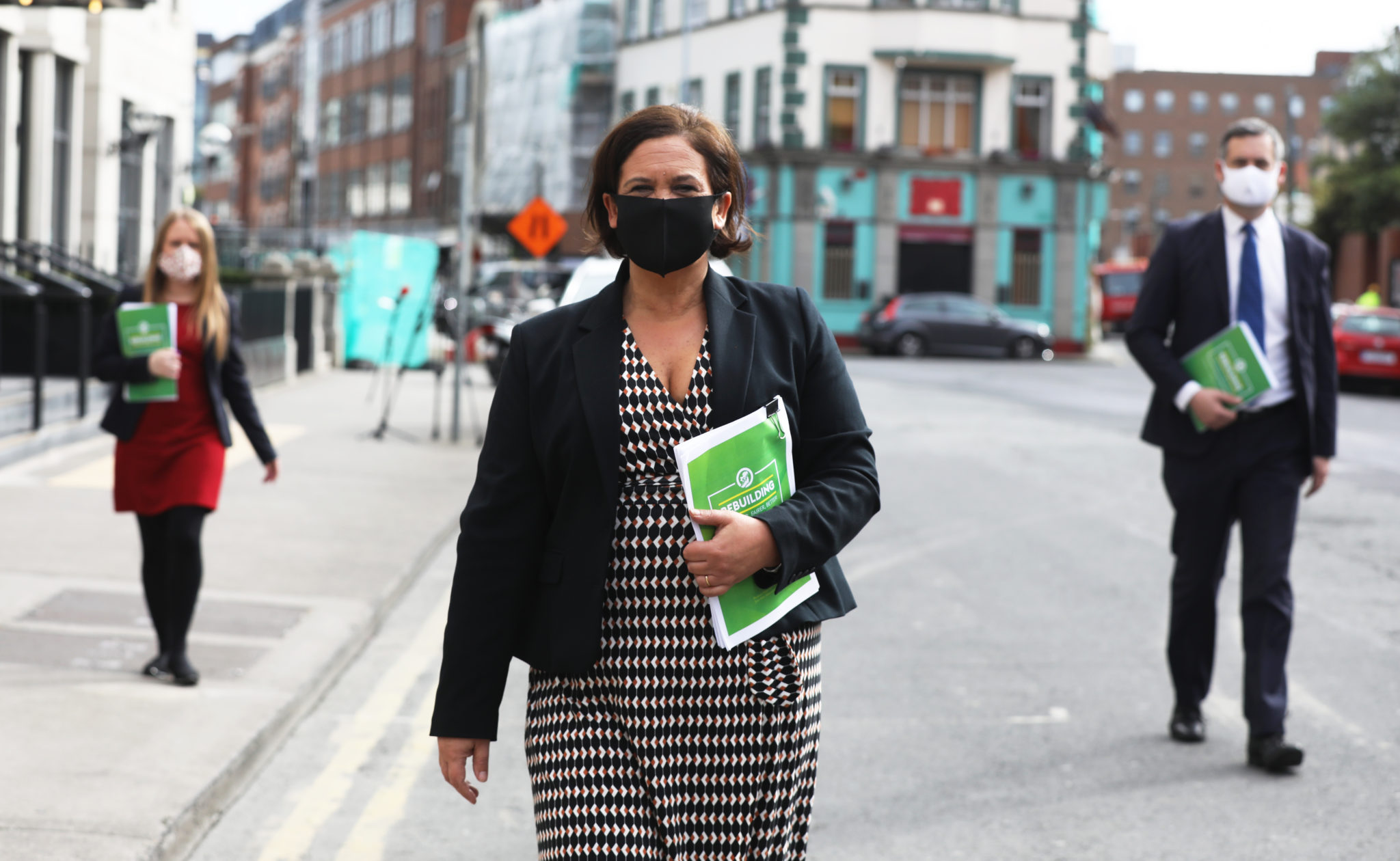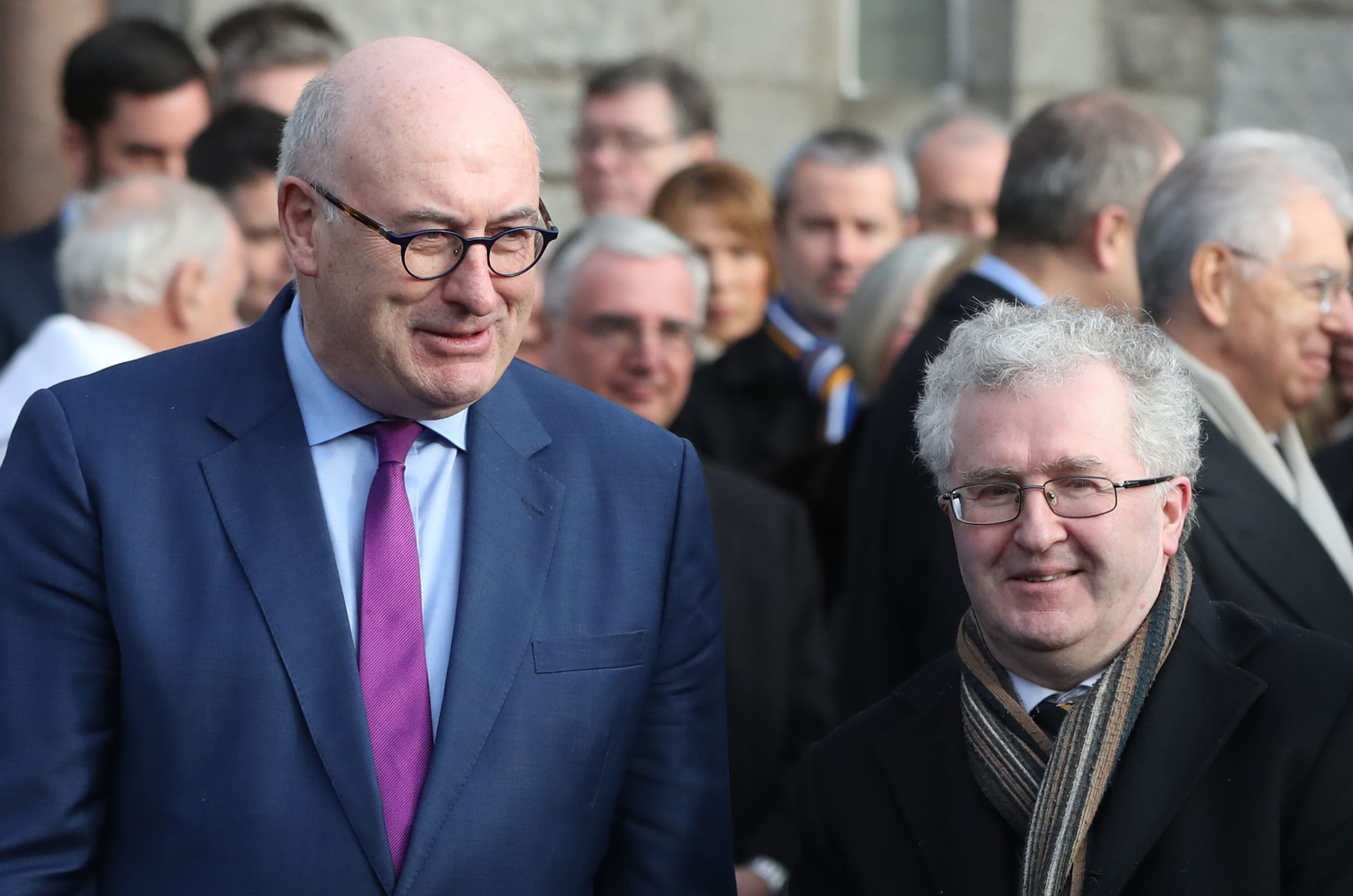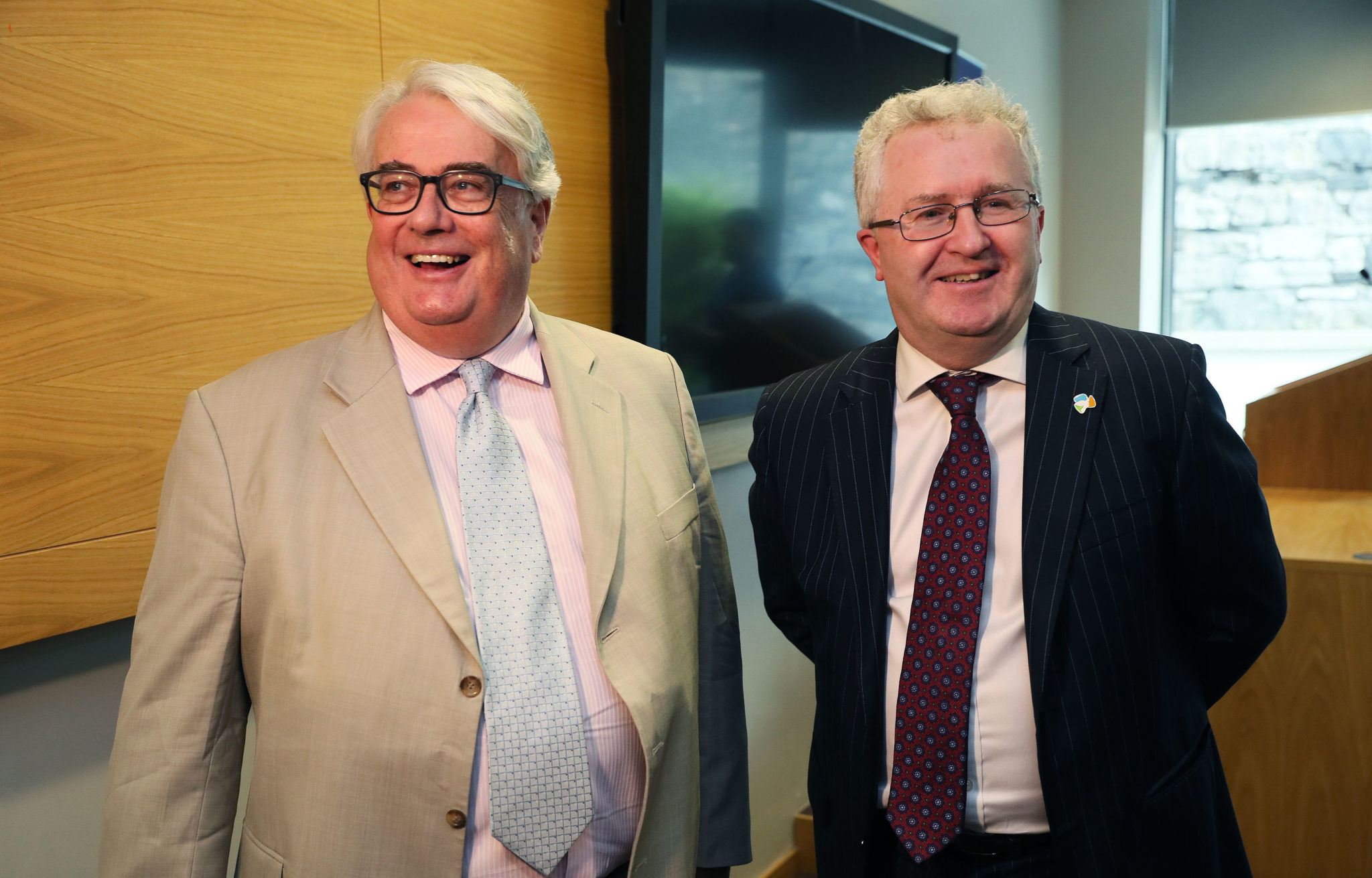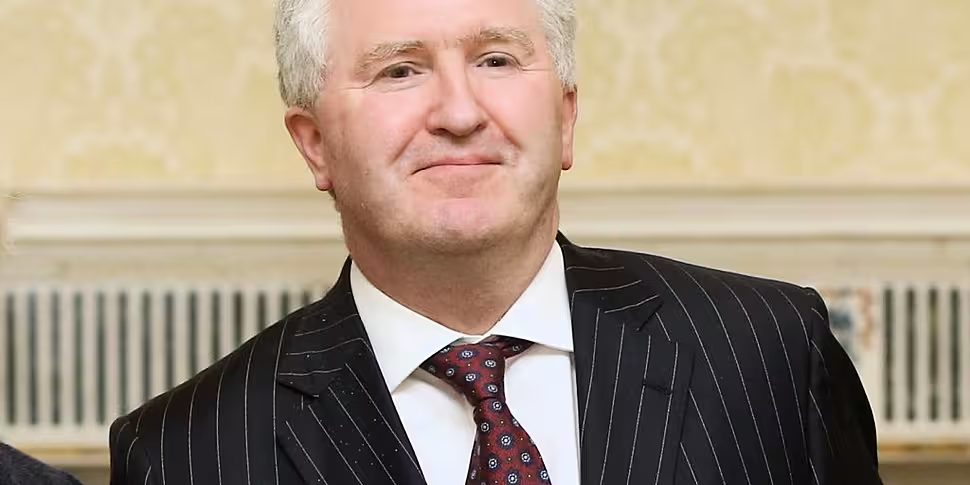The Attorney General has warned the Government that the ongoing controversy over Supreme Court Justice Séamus Woulfe raises “serious constitutional issues.”
The Taoiseach says he intends to seek a meeting with party leaders to discuss the matter.
Following a Cabinet meeting this morning, the Government confirmed that it had considered the letters between Chief Justice Frank Clarke and Mr Justice Woulfe which was published yesterday.
It said the Attorney General Paul Gallagher had warned ministers of the “serious constitutional issues” raised by the situation.
He warned that the controversy raises concerns over the separation of powers of each of the organs of the State as set out in the Constitution, “including in particular the respective roles of the Judiciary and of the Oireachtas.”
“The Government said ministers are “acutely aware of the sensitivity and seriousness of the issues and the need to ensure that the constitutional framework is fully respected by all concerned.”
Woulfe's refusal to resign has opened the question of impeachment by the Oireachtas, which can only be done in very limited circumstances.
TDs have been warned to be careful how they comment publicly on the stand-off in the judiciary.
Ceann Comhairle Seán Ó Fearghaíl told the Dáil: "It is crucial... that members do not comment on the matter either on the floor of the House or elsewhere, in such a way as give rise to a perception of bias - as this could act as a serious impediment to discharge their important constitutional functions if so required in the future."
Letters
In the letters, released last night, the Chief Justice Frank Clarke told Mr Justice Woulfe he should resign but admitted he had no power to make him do so.
Mr Justice Woulfe had agreed to a three-month suspension without pay but refused to step down.
On The Pat Kenny Show this morning, the Sinn Féin leader Mary Lou McDonald said Mr Justice Woulfe’s position is no longer tenable.
“I think we have seen an extraordinary exchange of letters between the Chief Justice and Justice Woulfe.
“The Chief Justice has made it clear that he has lost confidence and that the entirety of the court similarly believes that big damage has been done to the administration of justice,” she said.
“It just seems to me, in circumstances where the Chief Justice has lost confidence and the court itself, which is a collegiate court, has lost confidence, it is very difficult to see how Seamus Woulfe can sustain his position and insist that he stays on.”
 Mary Lou McDonald (centre) at the launch of Sinn Féin's alternative Budget 2021 at the Alex Hotel Dublin. Picture by: Leah Farrell/RollingNews.ie
Mary Lou McDonald (centre) at the launch of Sinn Féin's alternative Budget 2021 at the Alex Hotel Dublin. Picture by: Leah Farrell/RollingNews.ieShe said the Chief Justice has made it clear what he thinks – and it is now up to the Government to take the next steps.
"It is clear that [Justice Clarke] is not in a position to either force or request a resignation from Seamus Woulfe,” she said.
“But he has put it into the public domain that that is his view and that is the decided position of the court so that is an unprecedented situation, I think, and I fail to see how Seamus Woulfe can carry on in that regard.”
She said the Government must outline “precisely what they intend to do on this matter” before adding “clearly, this can’t drag on.”
 Phil Hogan (left) and Seamus Woulfe attend the funeral of Peter Sutherland at the Church of the Sacred Heart, Donnybrook Dublin, 11-01-2018. Image: Niall Carson/PA Archive/PA Images
Phil Hogan (left) and Seamus Woulfe attend the funeral of Peter Sutherland at the Church of the Sacred Heart, Donnybrook Dublin, 11-01-2018. Image: Niall Carson/PA Archive/PA ImagesMr Justice Woulfe was one of 81 guests to attend the controversial Oireachtas Golf Society dinner at a hotel in Clifden, County Galway in August.
The dinner was in breach of COVID-19 regulations that were in place at the time.
Then-agriculture minister Dara Calleary and European Commission Phil Hogan have both resigned their positions over their attendance.
 The Chief Justice Frank Clarke (left) with then-attorney general Seamus Woulfe, 26-09-2018. Image: Brian Lawless/PA Archive/PA Images
The Chief Justice Frank Clarke (left) with then-attorney general Seamus Woulfe, 26-09-2018. Image: Brian Lawless/PA Archive/PA ImagesIt letter published last night, the Chief Justice Frank Clarke told Mr Justice Woulfe that he believed he should resign to “avoid continuing serious damage to the judiciary.”
He said he was required as Chief Justice to reprimand the judge for his conduct - but noted he did not have the powers to 'impose any formal sanctions.'
In an email response however, Mr Justice Woulfe said he had no intention of stepping down.
He accepted his attendance was "inappropriate" but outlined in great detail why he didn't feel he had done anything wrong.
He agreed to the Chief Justice's suggested reprimand: no work until February and a waiver of his salary for that three-month period.
He also said he hoped they could move on from this and work in a "collegiate and friendly fashion" going forward.
You can listen back to Mary Lou McDonald Here:
With reporting from Michael Staines and Frank Greaney









